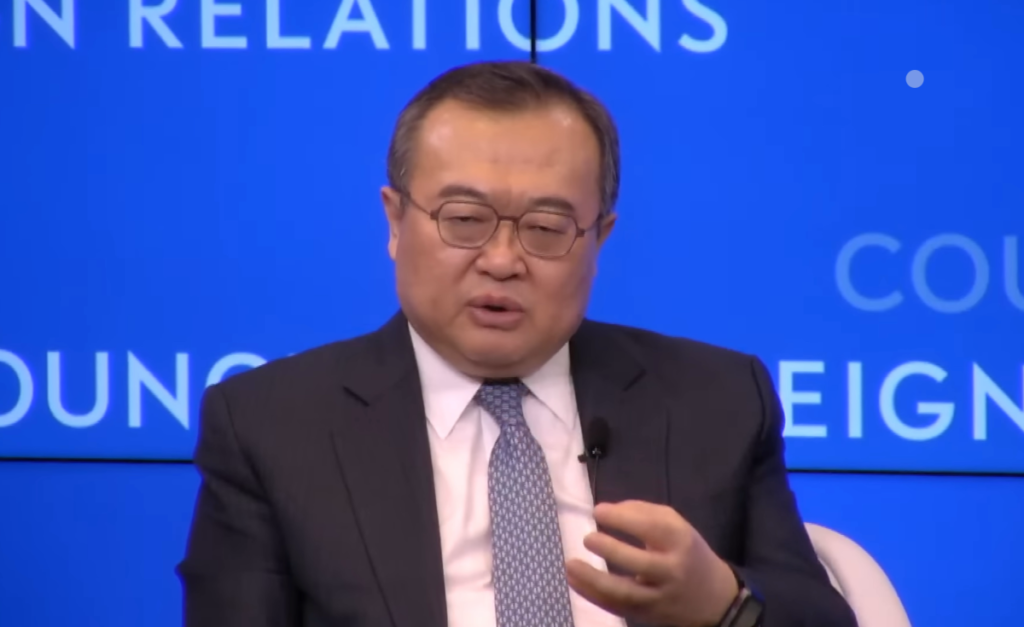In a discreet visit to Washington, a 59-year-old Chinese career diplomat, Liu Jianchao, has pledged to transform China’s image of “wolf warrior” diplomacy and enhance cooperation between China and the United States.
Liu Jianchao, the head of the International Department of the Chinese Communist Party (CCP), is being touted by the media as a prominent candidate for the next foreign minister, signifying his rising political stature in China. If Liu succeeds former Foreign Minister Qin Gang, who was dismissed last July, he would also assume the role of one of the five state councilors of China.
State councilors and vice-premiers are referred to as sub-national leaders in China, with national leaders, including Chinese President Xi Jinping, Premier Li Qiang, and five other CCP politburo standing committee members, holding a rank above them.
On December 6, Politico, known for publishing leaks from US intelligence services, reported that Qin had allegedly died, either by suicide or torture, in a military hospital in Beijing in late July. The report claimed that Qin and relatives of top rocket force officers had assisted in passing Chinese nuclear secrets to Western intelligence agencies. The Chinese government has not officially commented on this report.
Following Qin’s departure, Wang Yi, director of the Office of the Foreign Affairs Commission of the CCP, resumed the position of foreign minister. Liu has been sharing some of Wang’s diplomatic duties since late 2023.
Liu’s recent visit to the US, from January 8-13, included a meeting with US Secretary of State Antony Blinken on January 12. Both sides affirmed the importance of implementing progress made on key issues in the summit between Xi and US President Joe Biden in San Francisco last November. Discussions covered topics such as the detention of American citizens in China, China’s human rights, Taiwan, the South China Sea, and global issues including Ukraine, North Korea, the Middle East, and the Red Sea.
Katsuji Nakazawa, a senior writer at Nikkei, suggests in an article published on February 1 that Liu’s visit to the US is an indirect outcome of the strengthening ties between Russia and North Korea. According to an unnamed source, Liu’s crucial missions to the US are connected to the diminishing gap between North Korea’s leader Kim Jong Un and Russian President Vladimir Putin. The source claims that Russia supplied North Korea with more missile-related technology to secure the supply of artillery ammunition for use in Ukraine. China, uncomfortable with its regional interests being compromised, is allegedly seeking to align itself with the US.
Liu, during his US visit, emphasized that China does not aim to alter the current international order and refuted the concept of a return to “wolf warrior diplomacy.” In an event organized by the Council on Foreign Relations, he stated, “We are one of the builders of the current world order and have benefited from it.”
Regarding Taiwan and China’s wolf warrior diplomacy, Liu provided standard answers, highlighting the core importance of the Taiwan question to China’s interests and expressing hope for the US to honor its commitment not to support Taiwan independence. Council President Michael Froman jokingly described Liu as “a wolf warrior in sheep’s clothing.”
Liu’s visit to the US followed congratulatory exchanges between Chinese President Xi Jinping and US President Joe Biden on January 1, marking the 45th anniversary of diplomatic relations between China and the US in 1979. The visit coincided with the presidential election in Taiwan, where the ruling Democratic Progressive Party (DPP) secured another four-year term, disappointing Beijing.
On January 24, the Wall Street Journal speculated that Liu would likely be appointed as the new Chinese foreign minister during the National People’s Congress annual meeting in early March.

